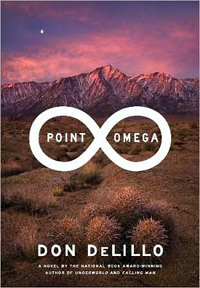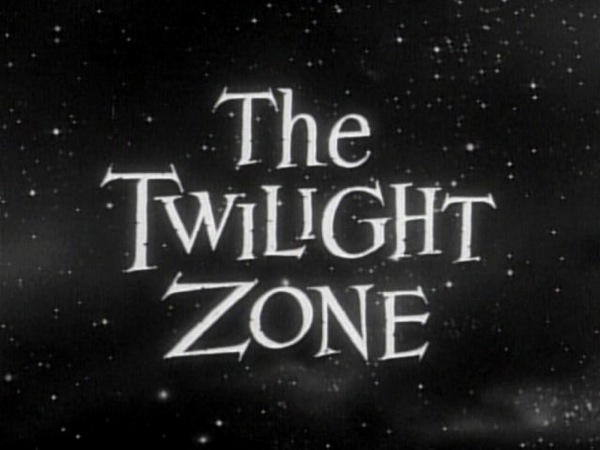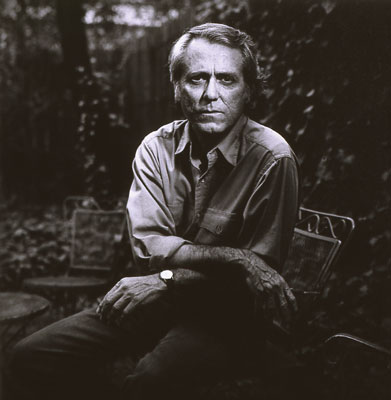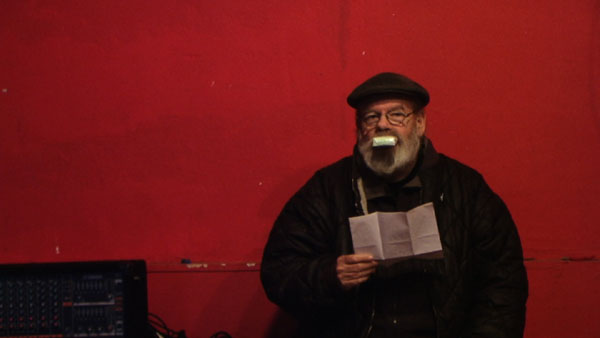Needing Don DeLillo
“A writer takes earnest measures to secure his solitude and then finds endless ways to squander it.”
– Don DeLillo, The Art of Fiction, The Paris Review No. 135
The following is a discussion of the world and effects of the works of Don DeLillo. The books focused on are chosen more by my emotional state than by pragmatism, however all of his works will make an appearance at some point. The assertion here is both personal and universal, stating that Don DeLillo changed my life, and gave new breath and scope to the world of literature.
Don DeLillo began writing later than many the American prodigy to change the movement of our country’s letters. His first novel, Americana (published when he was roughly 35 years old)—a winding tale of one man’s devolving lunacy reflecting a life of advertising, television, and travel—to hear him tell it, came from a quick sight of a man standing on a road staring off at nothing, that brief vision was enough to carry him through the beginnings of his first novel and, in light of that, the early stages of what has been one of the more tumultuous careers in history.
When the idea came to me to write about Don DeLillo for HTMLGiant, it was first slated to be an exploration of his novels Great Jones Street and, ideally, White Noise—comparing something less-discussed to something hailed as one of the masterpieces of the latter half of the 20th century; what fueled this? What brought about this response? Etc. etc. etc. ad infinitum. However, I found myself unable to hold back certain instincts as I began to reflect over his impact on me and this world as a whole, and in spite of myself began falling deeper and deeper into a DeLilloan stupor with every interview, novel, and anecdote explored. I found the intricacies of his books that I’d call my favorite proved far less ambiguous than I’d thought and that–say, with the discussion of contemporary (in 1985-ish) universities in White Noise–his work was sewn deeper into me than I’d realized.
There was, I think, initially an aversion to his writing due to the fact that the only copy of DeLillo’s work we had in my house growing up was a very daunting paperback of Underworld (interestingly, I was only completely drawn back to it when attempting an essay on the Spaldeen, a little Hi-Bounce Ball made by Spalding that I’ve become quite obsessed with that DeLillo notes in the novel, as they were the primary ball used in stick ball games in New York City in the heyday). I remember picking it up one day after reading Bret Easton Ellis considered him a great influence and finding myself lost beyond salvation. The words didn’t exactly register and when they did they seemed strange, infused with a level of what I’d now call reified Americanism that wasn’t apparent in anything I’d been reading at the time (Ellis, Fante, Kesey, et al, authors of fiction that seemed to be right there, which I found in DeLillo only after reaching the necessary level of paranoia to understand the first book of his I read and loved, Mao II) and in spite of a burning curiosity, I tucked the paperback where I’d picked it up on the shelf to remain for several years until I found those radiant little pink Spaldeens in a hardware store in Eau Claire, Wisconsin.
October 26th, 2012 / 12:00 pm
Point Omega

Point Omega
by Don DeLillo
Scribner, 2010
First Edition: 117 pages / Paperback Reprint: 128 pages; $12 Buy from Amazon
Sometimes, things are just complicated… A lot of Point Omega, or, a good portion of the book, I feel I did not understand. Sure, I’ve only read it once, so I guess I sort of expected this, but at the same time, I quickly realized that this was a different sort of “I did not understand.”
Basically, Point Omega was challenging. I paid attention to what was being said (for the most part) and yes, I even took notes, but still, I don’t think I get Point Omega, or, I don’t think I get all of Point Omega. But this is a good thing because I like how I am feeling right now: dumb, confused and (for some reason) mediocre/inferior—all at the same time. Of course, this is (still) my (initial) reaction to Point Omega, since I have only read it once (though I’m not sure I will be reading it again anytime soon) but this, in general, is a new type of feeling for me. It’s a feeling of deep-rooted confusion, weakness and extreme anxiousness. Usually, I’m more into books that make me feel powerful and strong and happy but, sometimes, I guess I like the mind-fucks too. And I’d like to think I am able to understand most things, and conceptually, I (think I) understood most of what was going on in Point Omega but also, not really. But that’s the point I think! Let’s develop this.
The way I see it: Point Omega is about the things that are around us, and (then, also,) the things that aren’t. Or, the things that we can see and then, the things we cannot.
For example, here is how the book opens, more or less:
October 19th, 2012 / 12:00 pm
The Time I Read a Lot of DeLillo Books and the Things that Happened
It was winter, and I took the bus home, or maybe it was the train, from Massachusetts to New York, so “home” is up for debate, and then a subway, probably, into my little apartment thing with a kitchenette and a big bathroom and no bedroom. Actually, maybe my sister drove me. It’s unimportant. I’d read Part 1 of White Noise, a copy I’d borrowed from the library over winter break. It made me feel happy, the descriptions, the opening chapter which I’d read on the internet several months earlier on a slow day at work. I already knew it was the novel I’d wanted to write the previous summer, the novel I’d abandoned at 30,000 words and character names that seemed true, but also false, and a number of edits that seemed confusing. I laid down on my bed. I think it was mid-morning, or mid-afternoon. The sun was in my window somehow, giving me natural light, but not enough to read by. I read Part 2, and it was about some sort of chemical disaster. I read it in a sitting that day, with the space heater from the bathroom on full blast. Then maybe I slept.
I’d returned from Vermont. We’d stayed at a bed and breakfast, and that week I would announce I was single and she would go to Germany, and I would be unable to read Part 3 of White Noise for several months, glancing through chapters on the subway to Bushwick, feeling drunk after zero beers. By this time, I’d returned my copy to the library and been gifted one from a friend who’d found the author underwhelming. I wondered if I should feel the same. I didn’t. I looked at the words. The sentences. The long paragraphs and the short, sparse dialogue. The radio and the television saying postmodern things. Things I’d later discuss with a friend that seemed similar to Updike’s “A&P” despite his distaste for “postmodernism.”
The semester passed. I was back in the former relationship. Vermont, but actually the next time we went to New Hampshire, stayed in a tent, drank PBR and bourbon and pickle juice. It was 90 degrees and we sweated in a pancake house. This was about two weeks after I’d finished the novel, back in Massachusetts, on a rainy afternoon, within a rainy week, the week before I would start work on a farm and listen to first Blood Meridian on my iPod, and later two other McCarthy novels.
Watching The Twilight Zone
 A few weeks ago, the lymph nodes along my neck suddenly swelled up. I had a doctor check it out and he determined I had strep throat, and then a week later, added mononucleosis to the diagnosis. Sort of a one-two punch of undergraduate illness. I didn’t feel that sick, and suffered little symptoms other than the inflamed globules along my jugular, but it became clear to me, getting drunk off three beers and exhausted at 5pm, that I should probably take it easy. My regular leisure, after school, work, and whatever other responsibilities I’ve lined up for myself on a given day, is to kick back with a few-to-several beers and do things on the internet. The doctor recommended I avoid this, so there was only one viable solution to passing time at the same rate and pleasure level: watch TV. I am one of those lucky enough to have acquired a password to my friend’s Netflix Instant Watch account, and, after watching The Larry Sanders Show, Archer, The Stand miniseries, My So-Called Life, and The League in their entireties, I noticed that The Twilight Zone original series had been recently added to the queue. Though perhaps the most referenced and acclaimed cult series in history, I must admit, I’d never seen one episode. I resolved, then, it would be my next big tackle in my imperial takeover of internet television.
A few weeks ago, the lymph nodes along my neck suddenly swelled up. I had a doctor check it out and he determined I had strep throat, and then a week later, added mononucleosis to the diagnosis. Sort of a one-two punch of undergraduate illness. I didn’t feel that sick, and suffered little symptoms other than the inflamed globules along my jugular, but it became clear to me, getting drunk off three beers and exhausted at 5pm, that I should probably take it easy. My regular leisure, after school, work, and whatever other responsibilities I’ve lined up for myself on a given day, is to kick back with a few-to-several beers and do things on the internet. The doctor recommended I avoid this, so there was only one viable solution to passing time at the same rate and pleasure level: watch TV. I am one of those lucky enough to have acquired a password to my friend’s Netflix Instant Watch account, and, after watching The Larry Sanders Show, Archer, The Stand miniseries, My So-Called Life, and The League in their entireties, I noticed that The Twilight Zone original series had been recently added to the queue. Though perhaps the most referenced and acclaimed cult series in history, I must admit, I’d never seen one episode. I resolved, then, it would be my next big tackle in my imperial takeover of internet television.
Critics on Criticism: Don Delillo
+
If I were a writer, how I would enjoy being told the novel is dead. How liberating to work in the margins, outside a central perception. You are the ghoul of literature. Lovely.
Don Delillo, The Names
+
Interview with Cool Famous Hot Literary Agent Erin Hosier
http://htmlgiant.com/q-a/interview-with-cool-famous-hot-literary-agent-erin-hosier/
Hey. I interviewed Erin Hosier. She’s a literary agent to a couple of fiction writers (Shya Scanlon, Brad Listi) and a lot of memoirists. Okay. I have a doctor’s appointment soon. I think that there is something wrong with me. Interview.

You mostly represent non-fiction writers, but a few fiction writers too, right? What kind of fiction manuscripts catch your eye? Do you want fiction that resembles memoir?
You should ask me more glamorous questions, like what kind of shampoo I use, or who my favorite designers are. I currently represent four literary fiction writers: Paul Jaskunas, Edan Lepucki, Brad Listi, and Shya Scanlon. I represent more illustrators than fiction writers. And more rock stars. Furthermore, these four writers are very different from each other, but I expect great things from each of them. I have represented other fiction writers over the years, but fiction writers tend to switch agents when I can’t sell their work. This is why I don’t handle more of it. My strengths are in writing, editing and pitching non-fiction. That’s my comfort zone. I even prefer documentaries to other movies, and I see way more movies than read books. Also, I’m a slow reader, and fiction comes in long manuscripts. I’ve noticed too that even if a novel is brilliant in so many ways – it makes you laugh or cry or it haunts your dreams or makes you look at the world in a new way, if it entertains – but it has just ONE fatal flaw in the marketing or manuscript department, it’s not going to sell.
August 10th, 2010 / 12:39 pm
Michael Kimball Guest Lecture #4: Story and Plot
“Fuck the plot.” Edna O’Brien says that in a Paris Review interview. She then goes on to say this: “What matters is the imaginative truth.” I don’t know what she means, exactly, by “imaginative truth,” but I can imagine what she means.
It reminds me of something that somebody told me Rick Whitaker said: “Plot tells you how their life turns out. What the fuck do I care about how their life turns out? I want to know their heart.”
And that reminds me of this quote from Andy Devine: “We all know how the story ends. If you have the baby, then the baby will die. If you fall in love, then the love will end.”
In spite of my affection for those three quotes, I still like to think about story and plot. I still like it when things happen in fiction. In fact, I have always thought that one of the great things about being a fiction writer is that you can make anything happen.
Page Suggestion
Facebook keeps suggesting I become friends with “Don DeLillo.” I’d like that very much, of course, and yet I have yet to seriously consider pushing the little button to connect myself to whatever’s on the other end of the DD-fb page. Ah, but just for a second, imagine if it really was… Playing DD at Mafia Wars. Taking his surveys. Clicking “I like this” when he posts about a good writing day. Sounds kind of nightmarish, actually, when you talk it out like that. No? Here’s some more from Mao II–
In the solitary life there was a tendency to collect moments that might otherwise blur into the rough jostle, the swing of a body through busy streets and rooms. He lived deeply in these cosmic-odd pauses. They clung to him. He was a sitting industry of farts and belches. This is what he did for a living, sit and hawk, mucus and flatus, He saw himself staring at the hair buried in his typewriter. He leaned above his oval tablets, hearing the grainy cut of the blade. In his sleeplessness he went down the batting order of the 1938 Cleveland Indians. This was the true man, awake with phantoms. He saw them take the field in all the roomy optimism of those old uniforms, the sun-bleached dinky mitts. The names of those ballplayers were his night prayer, his reverent petition to God, with wording that remained eternally the same. He walked down the hall to piss or spit. He stood by the window dreaming. This was the man he saw as himself. The biographer who didn’t examine these things (not that there would ever be a biographer) couldn’t begin to know the catchments, the odd-corner deeps of Bill’s true life.
Power Quote: Don DeLillo

Every sentence has a truth waiting at the end of it and the writer learns how to know it when he finally gets there. On one level this truth is the swing of the sentence, the beat and poise, but down deeper it’s the integrity of the writer as he matches with the language. I’ve always seen myself in sentences. I begin to recognize myself, word by word, as I work through a sentence. The language of my books has shaped me as a man. There’s a moral force in a sentence when it comes out right. It speaks the writer’s will to live. The deeper I become entangled in the process of getting a sentence right in its syllables and rhythms, the more I learn about myself.
– Mao II
Emails from ‘The Littlest Literary Hoax’
 The Chronicle of Higher Education recently posted an article about a few years old DFW/Delillo-related prank authored by a Jay Murray Siskind and published in Volume 11, Issue 4 of Modernism/Modernity, a scholarly literary critical quarterly review. According to the Chronicle, Mark Sample, an assistant professor of English at George Mason University, discovered the article, a review of Oblivion, in 2005 when one of his graduate students cited it in an essay. He forgot about it, time passed, then he got curious and dug some more to discover a good bit of humor behind the whole thing. I won’t go on to summarize all of the details, as plenty of information is out there already and many other blogs have covered it – see the following links:
The Chronicle of Higher Education recently posted an article about a few years old DFW/Delillo-related prank authored by a Jay Murray Siskind and published in Volume 11, Issue 4 of Modernism/Modernity, a scholarly literary critical quarterly review. According to the Chronicle, Mark Sample, an assistant professor of English at George Mason University, discovered the article, a review of Oblivion, in 2005 when one of his graduate students cited it in an essay. He forgot about it, time passed, then he got curious and dug some more to discover a good bit of humor behind the whole thing. I won’t go on to summarize all of the details, as plenty of information is out there already and many other blogs have covered it – see the following links:
Mark Sample’s original post regarding the ‘hoax.’
The Chronicle of Higher Education article, written by Peter Monaghan.
However, I do have this to add. I’ve got the email exchange between the graduate student, who asked to remain anonymous, and Sample, who kindly gave me permission to share it with you here. It’s a great little exchange, pretty funny. Enjoy after the break.



